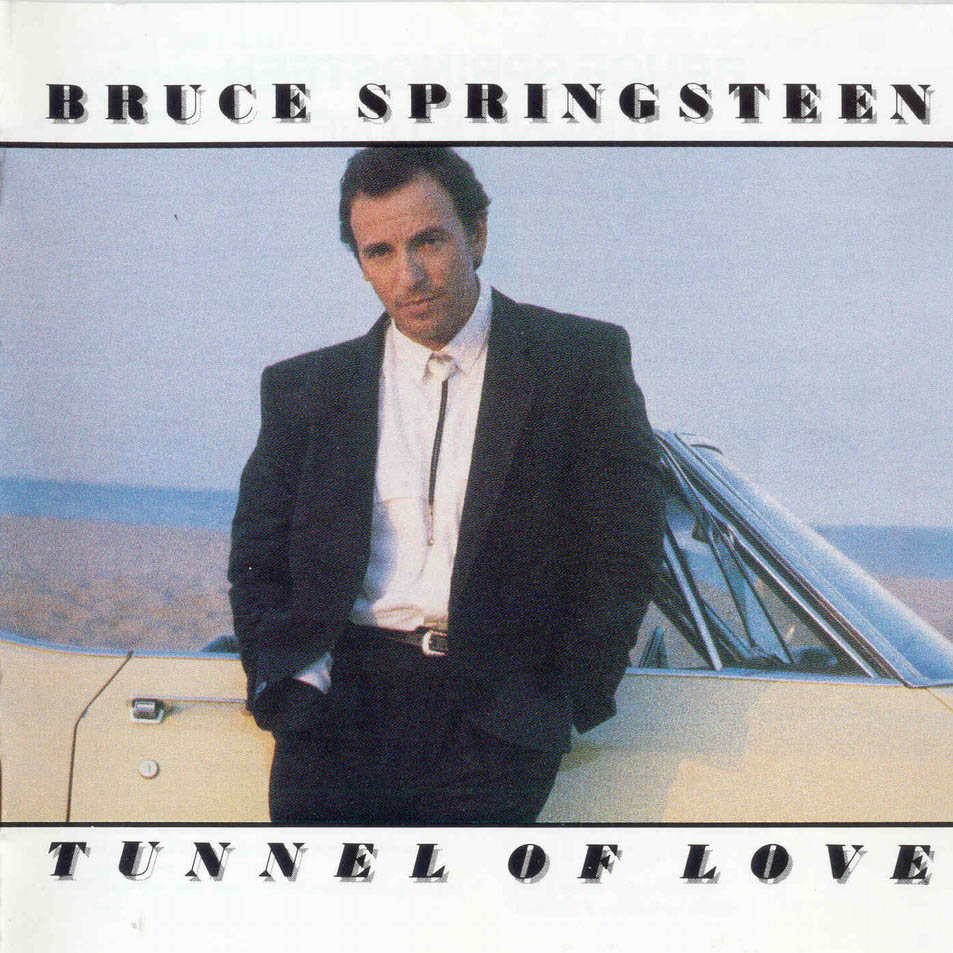
Tunnel of Love (1987)

1. Ain't Got You
2. Tougher Than the Rest
3. All That Heaven Will Allow
4. Spare Parts
5. Cautious Man
6. Walk Like a Man
7. Tunnel of Love
8. Two Faces
9. Brilliant Disguise
10.One Step Up
11.When You're Alone
12.Valentine's Day
By the mid-1980s, Bruce Springsteen had scaled the heights of rock stardom with Born in the U.S.A.—a record whose commercial success rivaled its cultural ubiquity. Yet such heights often come with a price, and Tunnel of Love, released in 1987, stands as both a response to that fame and a quiet rebellion against it. It is a deeply personal, sonically restrained, and thematically focused album that eschews grandeur in favor of introspection. For all its polish, it is one of Springsteen’s most vulnerable works.
Even the album cover is telling. Gone is the denim-clad, flag-waving everyman of 1984. In his place: a suited, solitary figure leaning against a Cadillac, more matinee idol than boardwalk troubadour. It’s a fitting visual prelude to an album that trades big declarations for quiet admissions. From the opening line of Ain’t Got You, where Springsteen sings of material wealth with barely concealed irony, it’s clear that the protagonist has changed—or perhaps, merely removed his armor.
Tunnel of Love is often mischaracterized as Springsteen’s “love album.” In truth, it is an album about disillusionment, the illusions of romantic expectation, and the emotional terrain between connection and collapse. Songs like Brilliant Disguise and One Step Up articulate a kind of emotional fatigue: love not as salvation, but as a series of questions. It is hard not to hear these songs through the lens of Springsteen’s personal life—his short-lived marriage to Julianne Phillips and the much-publicized shift toward E Street Band vocalist Patti Scialfa—but the album transcends autobiography. These are universal portraits of doubt, longing, and the faltering rituals of adult love.
Musically, Tunnel of Love marks a clean break from the sound that had defined Springsteen’s career to date. The E Street Band is credited, but largely absent in presence. Synthesizers and drum machines dominate the mix, aligning the record with the sonic aesthetics of the late ’80s. And yet, the songs maintain an emotional weight and clarity that is unmistakably his. The arrangements are spare, not sterile; introspective rather than inert.
The diversity within the set is notable. From the angry punch of Spare Parts to the hushed intensity of Cautious Man, Springsteen employs a range of styles while keeping the mood cohesive. The title track, with its deceptively upbeat rhythm, is among his most masterful dissections of modern relationships—where romance is likened not to a joyful ride, but to a midway attraction filled with sharp turns and dim lighting.
Though not received with the same rapture as its predecessor, Tunnel of Love was quietly revolutionary. It signaled a new phase in Springsteen’s career: the beginning of a more inward-looking, narratively mature body of work. Over time, it has earned its place as one of his most fully realized statements—an album that replaced anthems with admissions, and in doing so, revealed a different kind of strength.
In a discography marked by high drama and communal release, Tunnel of Love stands as a solitary walk through the quieter corridors of the heart. It is, in many ways, his most adult album—unflinching, artful, and, ultimately, deeply human.
Go back to the main page
Go To Next Review